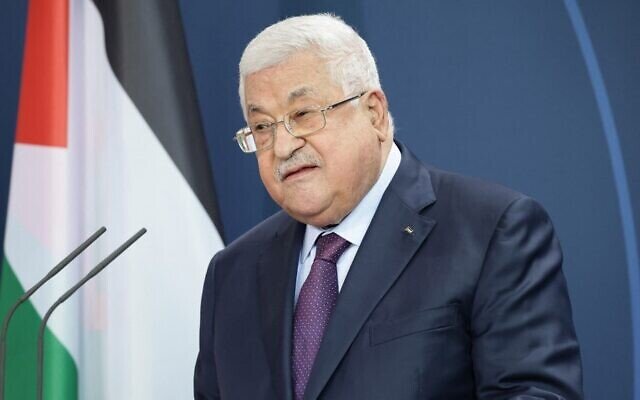The Palestinian Authority: A leadership in disarray amid conflict

MADRID- Amid the devastation of the ongoing conflict in Palestine, the Palestinian Authority (PA), led by Mahmoud Abbas and his Fatah party, has seen its power disintegrate, leaving it a near-irrelevant presence. For many Palestinians, the PA has come to symbolize collaboration with the colonial power and a chronic inability to defend the rights and interests of its people.
In late July, leaders of 14 Palestinian political factions, including Fatah and Hamas, met in Beijing in a bid for unity. The result was the Beijing Declaration, which promised to form a consensus government to manage Gaza and the West Bank, reform and expand the Palestine Liberation Organization (PLO), and call for general elections. While these principles are not new and echo previous reconciliation agreements, their urgency has increased amid Israel's brutal assault on Gaza. Since mid-August, Israeli attacks in response to
Hamas's October 7 offensive have killed over 40,000 Palestinians, displaced two million people, and devastated large swathes of Gaza.
Despite the severity of the situation, Abbas dismissed the Beijing Declaration as irrelevant and unconstructive. This reaction from an increasingly unpopular leader surprised many, as his indifference toward national unity at a time of extreme crisis underscores his leadership shortcomings.
Mahmoud Abbas's leadership has been marked by a series of failures since he took office in 2005 after the death of Yasser Arafat. Two key events defined his tenure: Israel's unilateral withdrawal from Gaza in 2005 and the collapse of the national unity government followed by a civil war in Gaza in 2007.
Abbas began his leadership with promises of diplomacy and unity. Initially, he managed to unify Palestinian factions to support a ceasefire with Israel, bringing an end to the violence of the Second Intifada. However, Ariel Sharon’s disinterest in a peace process and Israel’s unilateral withdrawal from Gaza, which was not aimed at advancing a two-state solution, left Abbas without room for maneuver.
The failure of this withdrawal triggered a series of devastating events. In 2006, Hamas's surprise electoral victory ended decades of Fatah dominance and plunged Palestinian politics into deep division. Politically, Fatah and Hamas represent entirely opposing views on resisting Israeli occupation. While Fatah and the PA advocate cooperating with Israel to suppress all forms of resistance, including international boycott campaigns, Hamas insists on active resistance, both military and civil.
The current moment demands effective leadership committed to national unity, something that seems beyond the reach of Abbas and his weakened Palestinian Authority.
The political differences between Hamas and the Palestinian Authority (PA) erupted into open conflict in 2007 when Hamas seized control of Gaza, expelling the PA. In response, the PA, led by Mahmoud Abbas, accused Hamas of staging a coup. Israel lifted certain restrictions in the West Bank while tightening the blockade on Gaza. Abbas and Fatah intensified their crackdown on Hamas leaders, arresting its followers, while Israel detained Hamas candidates who had won parliamentary seats and members of the new cabinet.
Supported by Egypt and Abbas, Israel imposed a severe blockade on Gaza, aiming to force Hamas’s surrender through the suffering of the civilian population.
Under Abbas’s leadership, the PA has aligned itself with the colonial agreements and structures imposed by Israel. For many Palestinians, the PA is seen as an obstacle to the national liberation struggle, a perception rooted in the Oslo Accords, which Palestinian intellectual Edward Said described as “an instrument of Palestinian surrender.” Abbas and his administration continue to operate within this framework, abandoning active resistance against Israeli colonialism and instead adopting a policy of accommodation.
The discourse adopted by the PA mirrors Israel’s perspective, rejecting any changes that challenge colonial dominance. Within this framework, demands for justice and respect for Palestinian rights are rendered meaningless, as no substantial ethical claims can be made without first redefining the current political order. This passive acceptance of the colonial narrative perpetuates a paradigm that condemns Palestinians to conditions of suffering and death.
The PA’s political inability to challenge the colonial structure underlies its antagonism with Hamas and other sectors of Palestinian society, who believe that justice can only be achieved through a political break from colonialism. This is the central difference between the Palestinian Resistance and the PA: while the Resistance sees breaking away from the colonial order as essential, the PA seeks accommodation within the existing oppressive system. This stance explains the PA’s collaboration with colonial forces, an act that many view as a betrayal of the national liberation struggle.
Security coordination between the PA and Israel—including intelligence sharing about the local population and the arrest or assassination of Palestinians, whether political dissidents or armed militants—clearly reflects the PA’s adoption of the colonial paradigm. This uncritical acceptance of the framework imposed by Israel is not merely a miscalculation but a conscious political choice designed to preserve the colonial order. In this context, the Palestinian Authority cannot be reformed or altered, as it was created specifically to function in this manner.
Leave a Comment